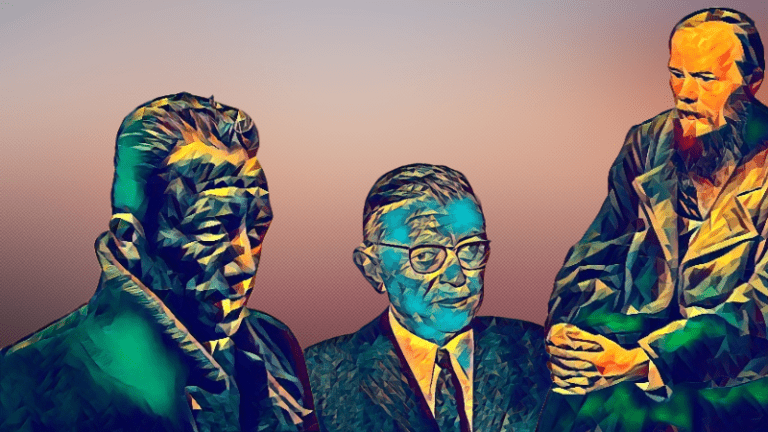The mind as a tool: benefits and risks
The mind is equally a tool that gives us the opportunity to understand that the bad things that happen to us are simply part of it and will not last, as well as one that protects us from forgetting that even if we are doing well, we can get a damper at any time. Unexpected twists and turns, in undesirable directions, in all their facets.
The mind is therefore another level of experience that allows us to distance ourselves from things. In this way, we allow ourselves a certain neutrality, but in all cases a certain attenuation of the experience.
But, and here's the problem, the mind can also be overused, preventing us from living fully in the moment and enjoying our happiness.
This shortcoming is known in almost all schools of thought and is therefore a relevant topic. However, the conclusions drawn are different, although they are generally similar.
Let's take Buddhism and Stoicism as an example.
Buddhism views the mind as a powerful instrument that can be the source of both suffering and happiness. From a Buddhist perspective, suffering arises from attachment to things, people or concepts and the inability to accept the impermanence of everything that exists. The mind plays a central role in this process, as it has a tendency to cling to pleasant experiences and avoid unpleasant ones. But the fear of bad things is also an issue.
Stoicism, on the other hand, sees the mind as the central tool for distinguishing between what is within our power and what is beyond our control. The Stoics emphasize that happiness and suffering do not depend on external events, but on the way we interpret and react to them. Through the exercise of reason and the application of the four cardinal virtues - wisdom, justice, courage and temperance - Stoics strive to train their perception to respond to events in a way that is conducive to their inner peace and virtue. They accept suffering as part of life and see it as an opportunity for personal development and the practice of virtue.
So in both schools of thought, the mind is seen as a key tool, not only to alleviate suffering, but also to achieve deeper happiness and contentment. The challenge is to cultivate and use the mind in such a way that it serves us without being dominated by it.
So how do we manage to use our minds in such a way that they are useful to us?
Here, too, there is a corresponding approach in almost every school of thought, as we can see from our two examples:
Buddhism suggests adopting an observer's perspective of our own thoughts and feelings through regular meditation and mindfulness practice. By learning to be present in the present moment and recognizing our automatic reactions to events, we can begin to make more conscious choices that lead to genuine happiness. Zen Buddhism in particular has many mindfulness practices and meditation which are probably the most essential pillar of these Far Eastern philosophies. Find out more in this article (and whether Zen Buddhism is at all suitable for us in the West).
Stoicism recommends developing a mental attitude through philosophical reflection and daily practice that allows us to deal more calmly with the uncertainties of life. This includes the practice of self-reflection, keeping a diary of our progress in virtue and making a conscious effort to control our reactions to external events.
While Buddhism takes the approach of distancing oneself from the mind - just as the mind is originally used to gain distance from experience - Stoicism takes a different approach. It tries to train the mind instead of calming it down or creating distance from it.
In both cases, the key to using our mind usefully is to consciously work on ourselves - whether through meditation, mindfulness, philosophical reflection or the practice of virtue. Through these practices, we can train our minds to help us experience life more fully in all its facets without being overwhelmed by the ups and downs.
If you want to read more about how to stop the mind from thinking too negatively or suppressing joy, you can find an article here (which refers to Heinz Erhardt).







